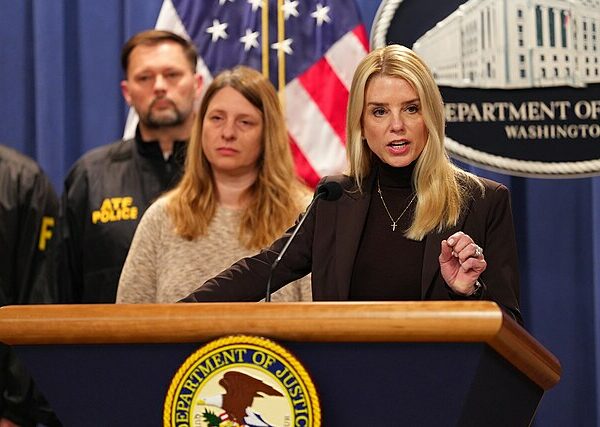
Federal prosecutors have charged three visiting scholars from China who worked inside a University of Michigan biology lab, alleging a coordinated effort to slip sensitive biological samples into the United States under the cover of academic research. The newly unsealed case adds another chapter to a growing set of investigations probing foreign activity in university laboratories, with the Ann Arbor campus again in the spotlight.
The defendants — Xu Bai, 28; Fengfan Zhang, 27; and Zhiyong Zhang, 30 — all held J-1 exchange visas tied to their roles in the Shawn Xu laboratory, formally led by researcher Xianzhong Xu. Prosecutors say Bai and Fengfan Zhang conspired to import restricted nematode materials through covert shipments routed from China, while Zhiyong Zhang allegedly lied to customs officers during an airport inspection.
Authorities contend the operation unfolded quietly over two years, with packages arriving in 2024 and 2025. According to investigators, the shipments were orchestrated by Chengxuan Han, a doctoral student from Huazhong University of Science and Technology, who traveled to the U.S. last summer to join the same lab. Han was quickly detained, later admitting guilt to smuggling and making false statements before being deported.
University officials began scrutinizing the lab after Han’s arrest, but the three visiting researchers declined to cooperate. They were subsequently dismissed, setting in motion immigration enforcement steps. As their departure neared, the men booked an October flight out of Detroit, then abruptly shifted plans to a late-night departure from New York. Agents intercepted them at the gate, where, officials say, their stories broke apart under questioning.
U.S. Attorney Jerome F. Gorgon Jr. framed the case as part of a larger pattern. “At some point, pattern becomes practice. And, apparently, these three men are part of a long and alarming pattern of criminal activities committed by Chinese Nationals under the cover of the University of Michigan. This is a threat to our collective security,” Gorgon said.
Attorney General Pamela Bondi underscored the national stakes. “Allegedly attempting to smuggle biological materials under the guise of ‘research’ is a serious crime that threatens America’s national and agricultural security,” she said. “We will remain vigilant to threats like these from foreign nationals who would take advantage of America’s generosity to advance a malicious agenda.”
Immigration and Customs Enforcement officials credited the coordinated investigation and said the incident illustrates gaps in academic-exchange oversight. Acting ICE Director Todd M. Lyons urged reforms, saying, “This case underscores the vital importance of safeguarding the American people and addressing vulnerabilities within foreign student and exchange visitor programs. Educational institutions must enhance their admissions procedures to prevent exploitation, which can pose risks to national security, as demonstrated in this instance.”
FBI Director Kash Patel emphasized that scientific credentials cannot shield unlawful conduct. “These charges show the FBI and our partners will aggressively investigate and hold accountable those who violate our laws, and that academic research cannot excuse illegal activity,” he said. “The Chinese nationals charged today allegedly were involved in smuggling biological materials into the U.S. on several occasions. The FBI and our partners are committed to defending the homeland and stopping any illegal smuggling into our country.”
ICE Homeland Security Investigations, the FBI’s Detroit field office, and Customs and Border Protection jointly led the probe. HSI’s acting special agent in charge, Matthew Stentz, stressed the local impact. “ICE HSI remains steadfast in its mission to protect the homeland from malicious foreign actors,” he said. “These cases impact both the safety of Michigan communities and our national security.”
FBI Special Agent in Charge Jennifer Runyan and CBP field operations director Marty C. Raybon echoed the message of unity. Runyan noted, “The actions taken by the FBI and law enforcement partners reflect our firm commitment to protecting the American people, defending the homeland and prioritizing national security.” Raybon added, “This case exemplifies the critical role of collaboration among our federal partners in defending our national security interests.”
The arrests are only the latest case in which the University of Michigan has been connected with alleged Chinese spies. In a separate case earlier this year, federal prosecutors charged University of Michigan researcher Yunqing Jian, 33, and her boyfriend Zunyong Liu, 34, with attempting to smuggle Fusarium graminearum—a destructive crop-killing fungus—into the United States.
The pathogen, which causes Fusarium head blight, has wiped out billions in grain harvests and produces dangerous mycotoxins that threaten both human and livestock health. Investigators warned that bringing the material into the country posed “the gravest national security concerns,” calling it a potential agroterrorism weapon. Jian was arrested in Detroit; Liu is believed to have fled to China. The incident has intensified scrutiny of foreign researchers in U.S. laboratories and echoes past smuggling cases tied to Chinese nationals, adding to calls for tighter oversight of academic research programs.
[Read More: Key Democrat Says He’s Out]











